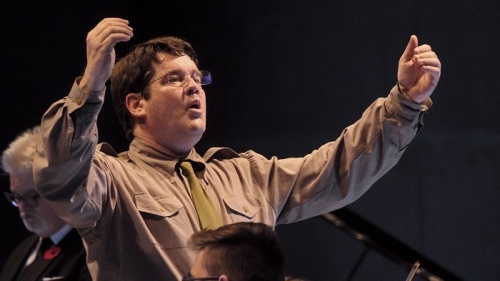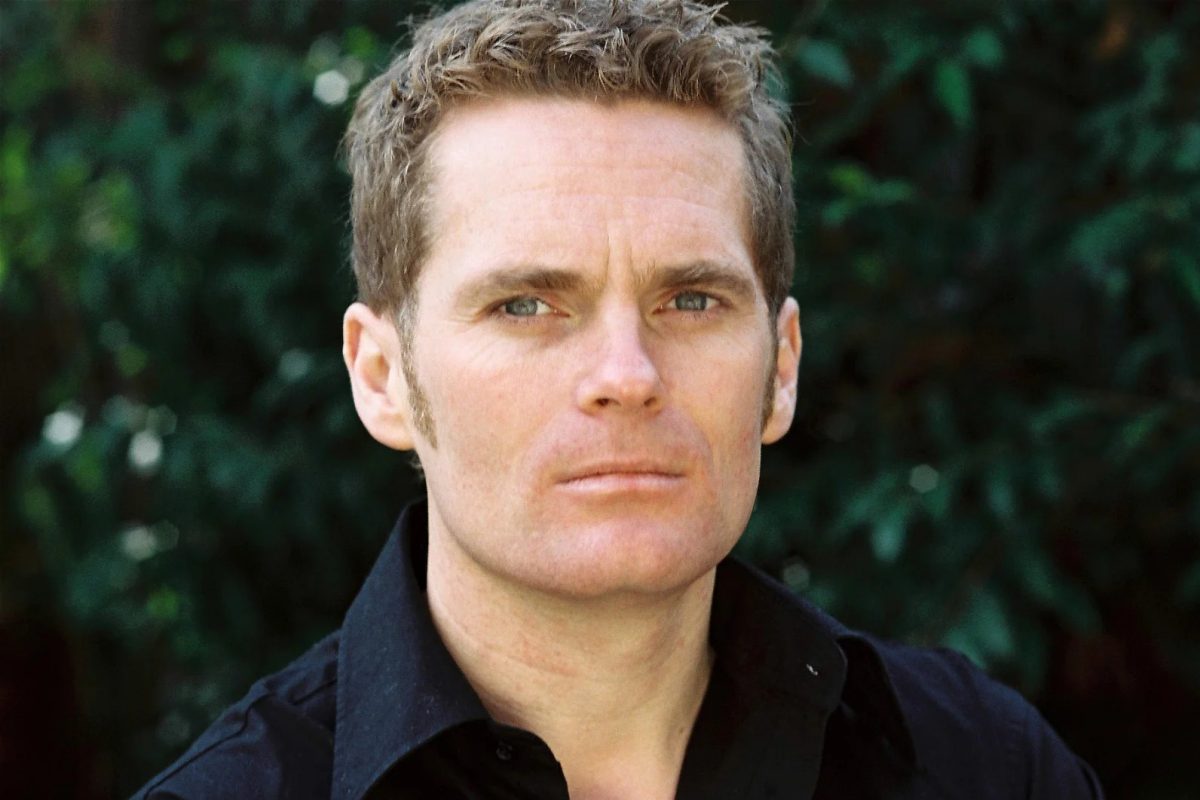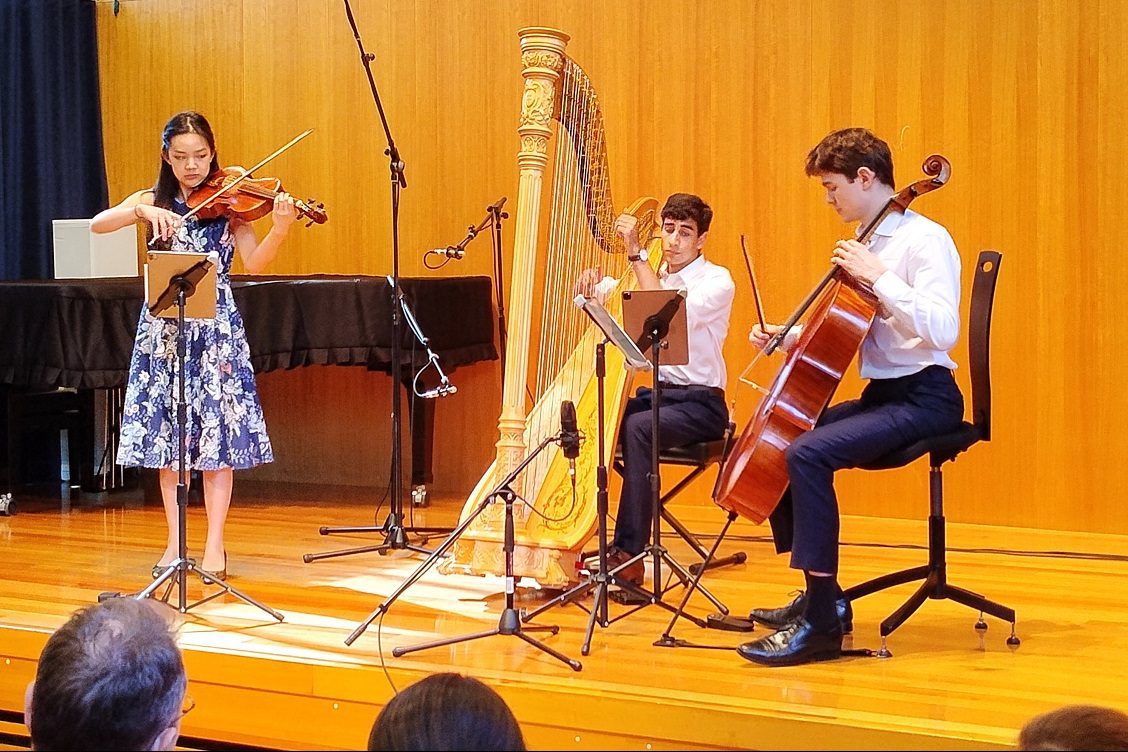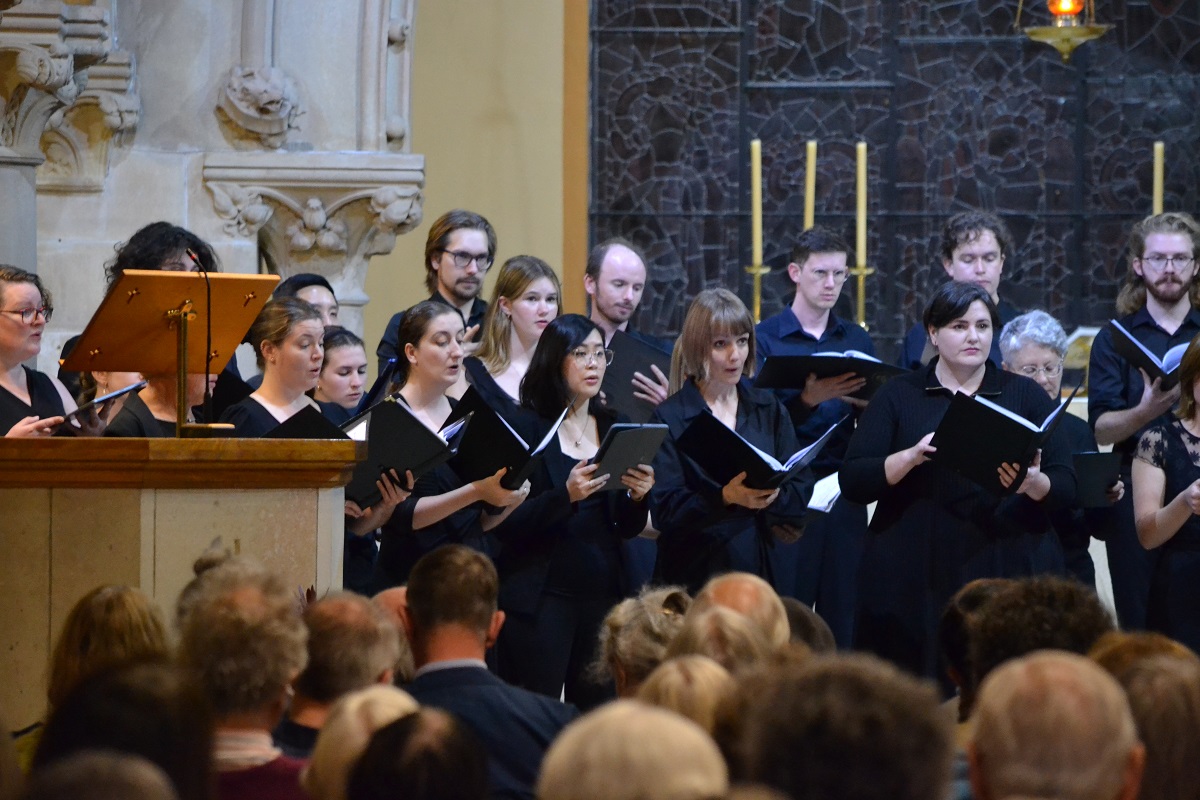
Like those bold, crazy-brave diggers – all they stood and died for, and all they achieved against overwhelming odds – the work Christopher Latham has produced is so grand in its boldness, so profoundly moving, it achieves the impossible.
Who would dare bring six composers together (plus Latham himself) and ask them to write for a single work? Who then would add music written by Handel, another by the Australian composer, Frederick Septimus Kelly, who was killed in action while rushing a German machine gun post in the last days of the Battle of the Somme, and still others by Scots, Alexander Lithgow and Pipe-Major John Grant? Would this boldness – this crazy bravery – work to create a cohesive whole?
Let there be no doubt; it does.
Add to that a comprehensive program booklet of 48 pages, with historic photographs, and World War I battle stories told in English, French and German.
On the dimly-lit stage were scattered poppies, two hurricane lanterns, the newly-formed Australian War Memorial Orchestra and Choir, members of the Band of the Royal Military College Duntroon, and four soloists.
While Latham’s conducting style was rather metronomic, he achieved excellent balance, dynamic control, and extraordinary emotion. Even between movements there often were such long, silent pauses, no-one dared breathe.

The overture set the mood perfectly for the following 12 movements, each of them themed on World War I battles in France and the Middle East. Joining Kats-Chernin in the composing task were Ross Edwards, Nigel Westlake, Richard Mills, Andrew Schultz, and Graeme Koehne.
Each movement was accompanied by touching and oft-times distressing photographs from the battles, projected on to a large screen at the rear of the stage, including a title slide.
And each movement was strongly evocative of its theme.
Westlake’s “The Glass Soldier” honoured Nelson Ferguson, from Ballarat, who succumbed to blindness from mustard gas, while the famous entry to Bapaume by the band of the 5th Australian Infantry Brigade was remembered in the tune they played – Lithgow’s “Victoria March”.
Mills’ “The Charge of the 4th Light Horse” honoured that most famous of all charges, at Beersheba.
Westlake’s “The Fall of the Aces” was a sorrowful elegy to the deaths of the flying aces, including the infamous Red Baron.
The melancholy sound of Jordan Aikin’s bagpipes approached from a distance high on the balcony with Grant’s “Lament for Pipers Lost”. And, in Edwards’ “Lux Aeterna”, bells were rung 62,000 times to represent the lost diggers.

Once again, a long silence conveyed the solemnity and poignancy of what preceded. It was only when Latham brought the on-stage forces to their feet, that the audience responded, rising as one to a sustained standing ovation.
In “The Diggers’ Requiem”, Christopher Latham’s decade or more of research into the musicians and composers of World War I, including his four-year-long “Flowers of War” project, has come to a triumphant climax. He is to be congratulated on a work that will be both a lasting symbol of the deep respect we all owe those who made the ultimate sacrifice on our behalf, and a lasting symbol of world peace, to which we all strive.
Who can be trusted?
In a world of spin and confusion, there’s never been a more important time to support independent journalism in Canberra.
If you trust our work online and want to enforce the power of independent voices, I invite you to make a small contribution.
Every dollar of support is invested back into our journalism to help keep citynews.com.au strong and free.
Thank you,
Ian Meikle, editor




Leave a Reply